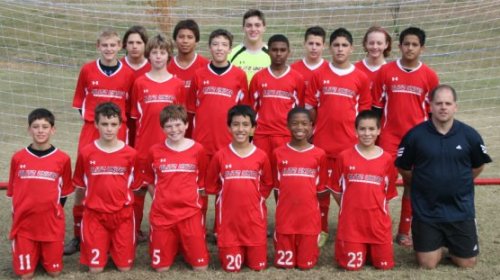
The best and fastest way to learn a sport is to watch and imitate a champion.
Jean-Claude Kelly
Every soccer organization knows the scenario all too well. Parents out of control can ruin a soccer game or a soccer team. Whether it is the verbal abuse given to the referee crew or the verbal harassment directed at opposing players, parents can ruin the soccer environment. Sometimes it even goes beyond verbal problems and there are physical confrontations with either the referee or other parents. When parents are out of control the whole soccer league suffers.
Soccer leagues have tried several interventions which are designed to keep parents in control. The problem with these interventions is they start with the premise that parents are bad and must be controlled.
I believe that 99.5% of parents want positive things for their child playing soccer. They want a positive soccer environment. They want positive coaches who teach the game and develop team cooperation. They want positive referees who call games fairly. Parents will support a referee who is charge of the game including the sideline environment. And yet there are times when these parents get caught up in the excitement and intensity of the game and the parent loses all perspective of what is important to them as parents.
They are frustrated with referee calls in which they disagree. They are frustrated by the play of the other team. They are caught up in the intensity of the importance of this soccer match. They do not want to lose this game. They forget that the referee is part of their community and say things to him that they would be embarrassed to repeat the next day at work. They start verbally attacking the opposing player forgetting that the player is someone else's child who may be affected by such negative language.
When parents start to lose their perspective, there needs to be an intervention. The most powerful of all interventions is from other parents on the same team.
One of the major advances in sport training has been to understand how to help athletes use their mind while under pressure. We teach athletes lots of skills concerning how to handle pressure and perform under adverse conditions. But we do not teach these skills to parents who are often caught in the "Intensity Web". Their only way out is to verbally or physically act out on the field. Most recent parent training has focused on what parents can't do instead of harnessing their power of a positive force to keep the game positive. However, when parents have been through performance parent training that focuses on the positive power of parents, they feel more empowered to help their fellow parent stay in control.
The El Paso Model of youth sport parent training is to teach parents mental skills that are taught to athletes to help them contain intensity levels on the field. These skills include:
As parents become familiar with these skills and feel empowered that they are part of the positive environment for youth sports, then they will form an alliance with league officials and game officials to help all participants stay in containment during youth competition. The El Paso experience is that parents are more empowered and that they are more willing to help other parents stay appropriate during games.
Parents don't have to be the problem. Parents can be a powerful part of the solution when given the tools to help create a positive game environment.